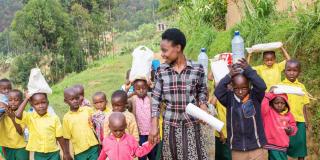
Josephine Nyirampuhwe, 28, is an early grade teacher in Bori village, in Nyamasheke district, Rwanda. Her classroom is a wooden hut with a mud floor and no furniture, in which she tries to equip 58 local children with quality early childhood education (ECE). She receives no government salary, surviving on school fees paid by those parents who can afford to in this, one of the poorest districts in the country.
Before I was a teacher, children in this community could not go to school because schools are very far located. I had graduated from Urugerero [Rwanda’s national voluntary service] after secondary school. This room had been built by local parents who asked me to help them teach their children. That was three years ago.
Where I am teaching, there are only children from very poor families. Those are well to do take their children to better schools. Most families do not even send their children to pre-primary school as they can’t afford to provide school food and fees.
Struggling to get by
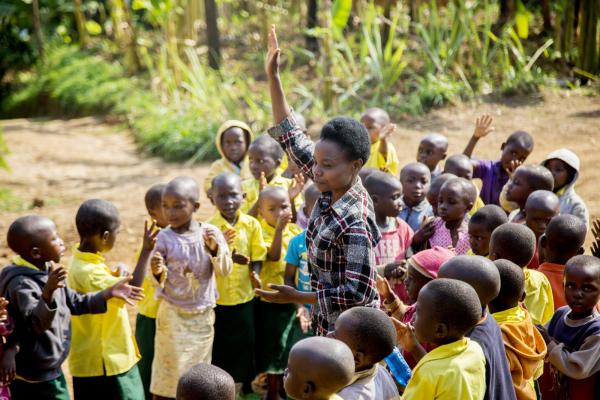
Josephine receives no official salary for her work, depending on the contributions of parents, many of whom are in financial hardship
The number of children in my class has steadily increased. Today it is 58.
It is very difficult. Every parent should pay 500RWF per month. But when it is the end of the month, it is very possible that only one parent has brought this money.
Each month I earn 12,000RWF [£12] at most. When I get a little money I can buy sugar or soap. I can’t say it is enough because I don’t have enough money to buy shoes. I am always patient and hopeful that things will change.
I keep going because I have passion for teaching. This is a noble position and I like it. Sometimes you ask yourself why the government doesn’t support us more. Even some parents seem not to give it much value.
But some parents do come to thank me. Those are the ones that have noticed the difference between the performance of their children that I have taught, and those who have not got this basic education.
Getting creative
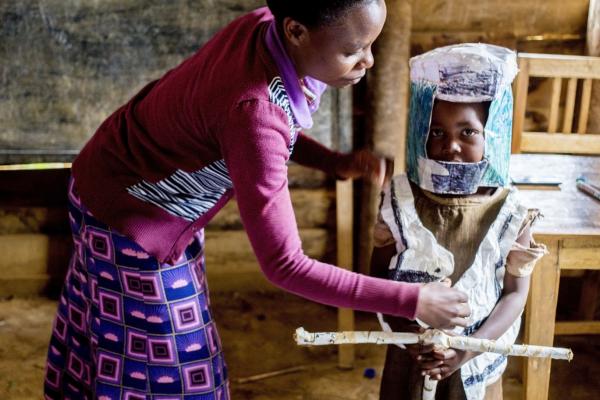
Even though she doesn't have many resources at her disposal, teacher Josephine looks for ways to use discarded material to make learning aids to help develop young minds
VSO volunteers showed me how to create locally made teaching and learning materials. Before this training I had to ask the head teacher to borrow books. Sometimes I would only have one book for the whole class so I would draw pictures.
Now we know how to teach with these local materials and to make learning corners. I like thinking of things I can make for the children using these discarded materials. Some bottle tops can be a counting game. A rice sack can become the costume for a moto driver. The button helps develop fine motor skills, and the role play helps with socialising and introducing concepts of counting and money.
Before starting class, I have to motivate the children using a song. I make them my best friends so that they can respect my instructions.
My teaching has improved because now students are learning by doing, which makes them better understand the lesson. The children are very active and involved. They study reading, mathematics and social studies.
I use songs to motivate them, and make them my best friends so that they can respect my instructions. We have a great team spirit. The change in my students’ performance is super, so I feel good.
About the project
Rwanda has prioritised upgrading the quality of ECE in hopes of reducing rates of repetition at primary school. Currently only around one in five children receives pre-primary schooling.
A new ECE teacher training curriculum, developed with the support of VSO is being embedded with the help of VSO volunteers on the EQUECER-II project.
Volunteers work in teacher training colleges as well as with in-service teachers like Josephine, many of whom had never had any professional training in early childhood development beforehand.
The project was delivered in partnership with UNICEF.
Read more

The two volunteers empowering girls and young women in Mozambique
Nelma and Carmirene and are two volunteers working on VSO's EAGLE project in Mozambique. For Nelma and Carmirene, education is not just about school, it is about meeting people where they are and using the right tools to challenging harmful norms. Here are their stories.
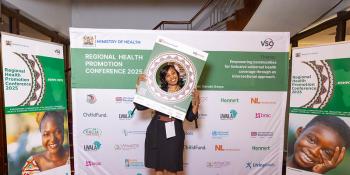
In photos: Our Regional Health Promotion Conference 2025
Check out some of our favourite photos from Regional Health Promotion Conference (RHPC25). This event sought to reimagine Universal Health Coverage through the lens of intersectionality.
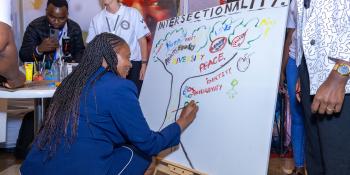
Using intersectionality to create healthy beginnings and hopeful futures
World Health Day brings global attention to the urgent need to end preventable maternal and newborn deaths. Learn more about how our Regional Health Promotion Conference is tackling these issues head on.
